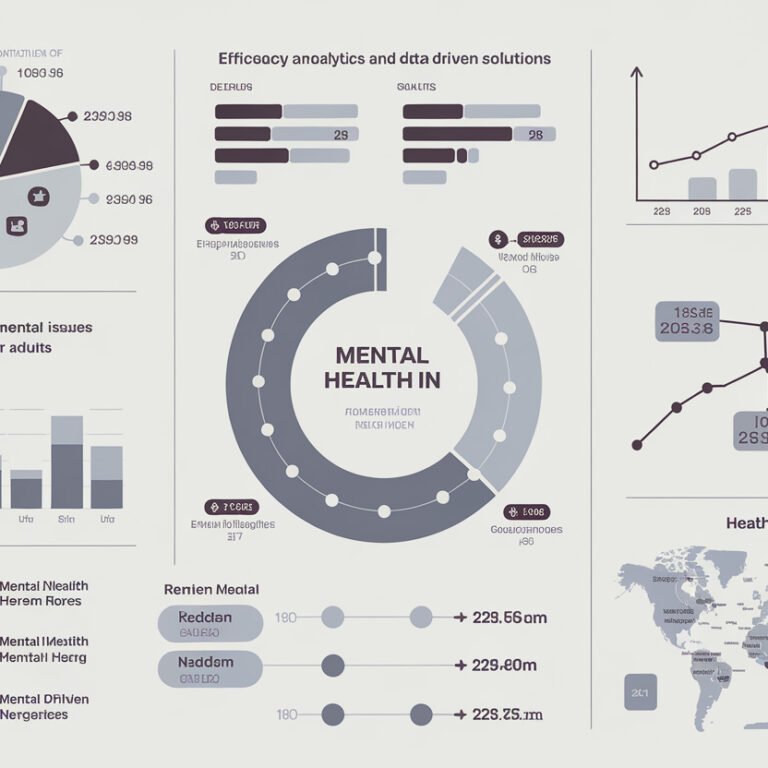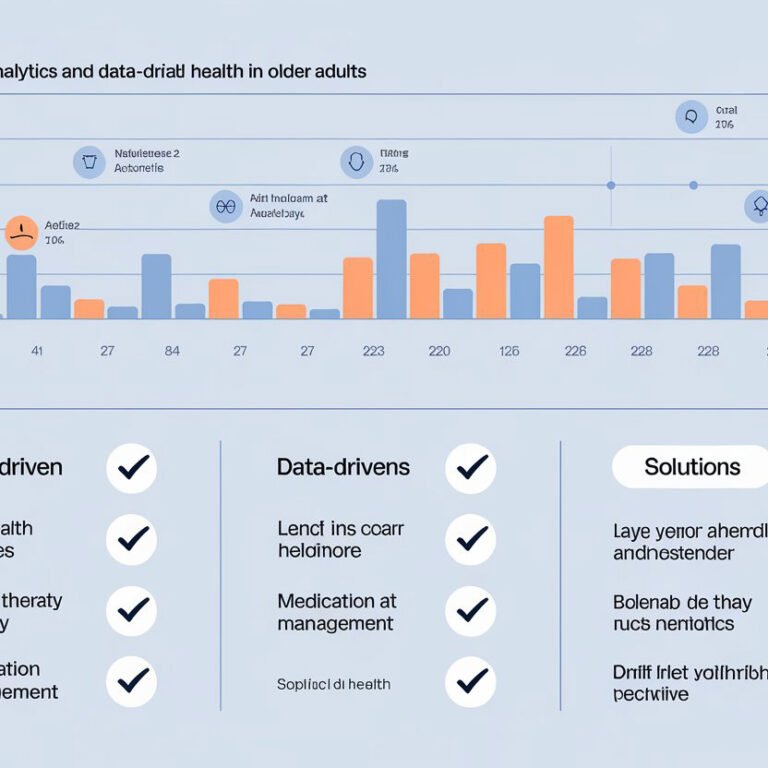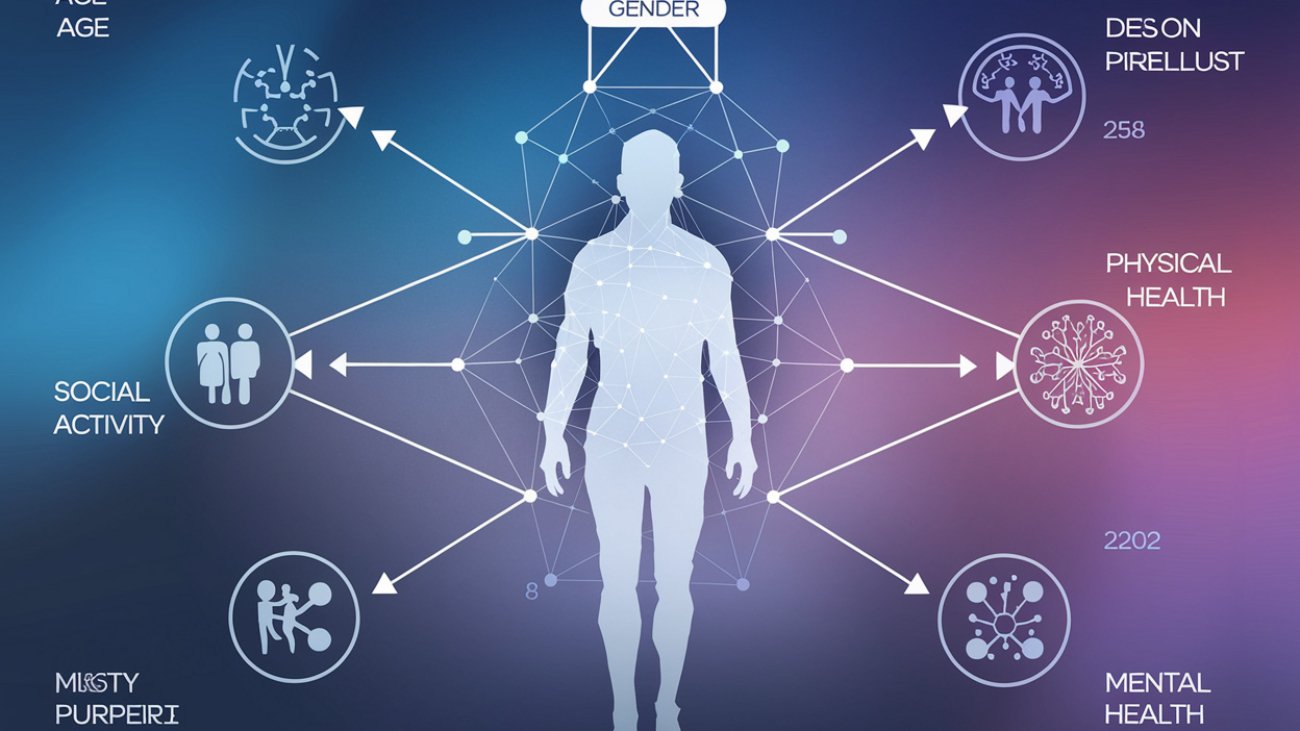The rapid evolution of technology has introduced a myriad of tools that are revolutionizing healthcare. Predictive analytics and data-driven technologies are now at the forefront, particularly in mental health care for older adults. By harnessing the power of machine learning, artificial intelligence, and big data, healthcare providers can proactively address mental health concerns in seniors, potentially improving their quality of life.
Why Predictive Analytics in Elderly Mental Health?
As people age, they face unique challenges related to mental health, such as loneliness, cognitive decline, and increased risk of depression and anxiety. Predictive analytics allows healthcare providers to recognize patterns in these issues early, based on data gathered from various sources, like health records, wearable devices, and regular assessments. Early intervention enabled by predictive analytics can be life-changing, providing preventive care before issues worsen.
Key Applications of Predictive Analytics in Mental Health
With predictive analytics, healthcare providers can monitor subtle changes in behavior or cognitive performance that might indicate the onset of mental health conditions. For example, machine learning algorithms can analyze behavioral data collected through wearable devices, detecting early signs of depression or cognitive decline
By analyzing historical and real-time data, predictive analytics can help create personalized mental health plans tailored to each senior’s needs. This ensures that each individual receives the best possible care, whether it involves counseling, medication, or engagement activities that promote mental well-being.
Predictive analytics can empower caregivers to act preemptively. For example, if data analysis shows that a senior’s physical activity has significantly decreased, it may signal social isolation or the onset of depression, prompting caregivers to intervene early with appropriate support

The Role of Data-Driven Technology in Enhancing Mental Wellness
Data-driven technologies complement predictive analytics by gathering and processing data to provide actionable insights. These technologies have the potential to make mental health assessments more efficient and effective.
- Wearable Devices for Continuous Monitoring
Wearable devices like smartwatches or specialized mental health monitoring devices can continuously collect data on an individual’s daily routines, sleep patterns, and even social interactions. This data provides healthcare providers with a comprehensive view of the senior’s mental health status, allowing them to tailor their care. - Mobile Applications for Daily Check-ins
Mobile applications designed for older adults enable them to check in with their mental health on a daily basis through simple questionnaires or mood-tracking exercises. Data from these applications is analyzed by machine learning algorithms to provide insights into the individual’s mental health trends over time. - Data Security and Privacy
With increased data collection comes the need for enhanced security. It’s essential that mental health data is protected to comply with regulations and to ensure seniors’ privacy. This trust in secure data handling encourages more seniors to participate in data-driven mental health programs.
Benefits of Predictive Analytics for Older Adults
| # | Section | Details |
|---|---|---|
| 1 | Reduced Hospital Readmissions | Preventive care enabled by predictive analytics can significantly reduce the need for hospitalization by addressing issues early. For instance, by tracking a senior’s medication adherence and mental well-being, predictive analytics can flag potential risks, allowing caregivers to take necessary actions. |
| 2 | Improved Quality of Life | Proactively addressing mental health challenges can greatly improve seniors’ overall well-being. The ability to detect early signs of mental health decline ensures that they receive the support they need, maintaining their independence and quality of life. |
| 3 | Better Resource Allocation | Data-driven insights can help healthcare organizations allocate resources more effectively, focusing efforts where they’re most needed. For example, predictive analytics might indicate that certain groups of seniors are at higher risk for loneliness or depression, enabling healthcare providers to direct resources toward these groups. |
| Challenges and Considerations in Implementing Predictive Analytics | ||
| 1 | Data Privacy and Consent | Elderly individuals may be concerned about their data privacy. It’s essential to obtain their consent and to communicate clearly about how their data will be used to improve their care. |
| 2 | Technological Literacy | Not all seniors are comfortable with technology. Designing easy-to-use interfaces and offering guidance on using these tools can help encourage older adults to participate in data-driven mental health programs. |
| 3 | Regulatory Compliance | Predictive analytics in healthcare must comply with stringent regulations like HIPAA in the US or GDPR in Europe, especially when handling sensitive health data. Adhering to these regulations is essential for building trust and ensuring data security. |

The Future of Predictive Analytics in Elderly Mental Health
As predictive analytics and data-driven technologies continue to advance, the possibilities for enhancing mental health care for older adults will expand. Future developments may include:
- Integration of AI-Powered Chatbots
Chatbots can engage seniors in conversation, collect data, and provide support when needed. These AI-driven interactions could potentially detect early signs of mental health issues and encourage seniors to seek further help. - Telemedicine for Remote Mental Health Support
Predictive analytics combined with telemedicine could allow seniors to access mental health professionals remotely, providing timely support regardless of location. - Advanced Wearable Devices for Mental Health Monitoring
Future wearables may become even more sophisticated, offering real-time tracking of mood, sleep quality, and activity levels. These advancements would provide healthcare providers with richer data for mental health analysis.
In conclusion, predictive analytics and data-driven technology represent a new frontier in elderly mental health care. By embracing these innovations, healthcare providers can offer preventive and personalized care, ensuring that mental health challenges are addressed proactively. As technology continues to evolve, predictive analytics has the potential to transform mental health care for seniors, offering them a brighter, healthier future.
